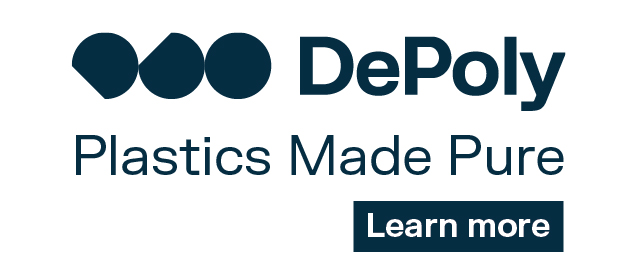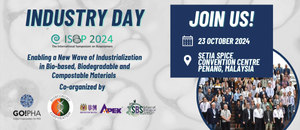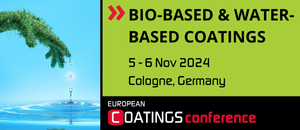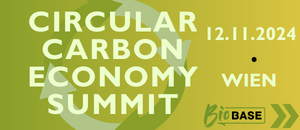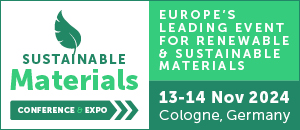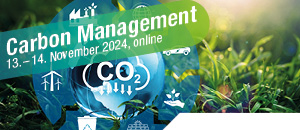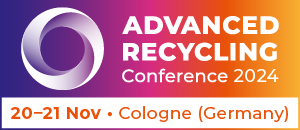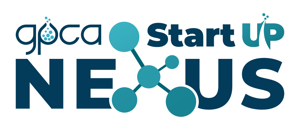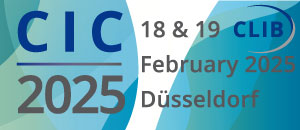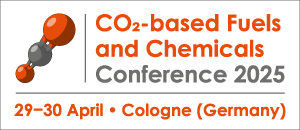CropEnergies AG, Mannheim, Germany, has acquired a stake in the Dutch start-up for biobased chemicals Syclus BV, Maastricht. CropEnergies purchases 50 percent of the company’s share capital. The investment volume amounts to EUR 1.8 million.
The goal is to build an industrial scale plant for the production of renewable ethylene from renewable ethanol. Ethylene is a basic chemical usually made from fossil oil and gas and is widely used in the chemical industry in particular for plastics and polymers used in everyday products. Historically, European demand for ethylene was approximately 20 million tonnes per year.
The initial investment will go towards the development of the future plant. During this time, Syclus will work out the technical and economic viability of producing renewable ethylene at Chemelot Industrial Park, Geleen, the Netherlands. Discussions with potential clients will be deepened. Assuming a positive result, basic engineering is scheduled to start in late 2023. Syclus plans on building a plant with an annual production capacity in the range of 100,000 tonnes, starting production in 2026. This would require an investment of EUR 85 to EUR 100 million.
Syclus was founded in 2021 by a group of professionals from the chemical industry. Syclus’ vision is to become a leading producer for 100 percent bio-based, renewable ethylene. It will be used as a sustainable alternative with a low carbon footprint to fossil oil and gas-based ethylene. Major applications of ethylene-based plastics and polymers include packaging, building materials, automotive applications, paints, adhesives, fibers, clothing and many more everyday products. Ethylene made from renewable ethanol provides a fast, secure, affordable, sustainable and impactful option to fulfill society’s continued demand for plastics and its ambition for net zero greenhouse gas emissions. With this product, we can achieve to meet an increasing demand for sustainable and recyclable plastics.
For CropEnergies, the investment in Syclus is a further step in the implementation of the company’s strategic realignment launched in 2021. So far, CropEnergies has mainly produced renewable ethanol as a climate-friendly, domestic fuel substitute as well as food and animal feed products. As part of the diversification strategy, the focus in future will be on the defossilisation of other sectors of the economy in addition to the megatrend of extensive defossilisation of mobility.
Dr Stephan Meeder, CEO of CropEnergies AG: “Producing renewable ethylene from our sustainable ethanol is a great way to make the chemical sector independent from fossil resources. With Syclus we have found partners who bring to the table extensive know-how and experience in the production of base chemicals and who share our vision of developing sustainable products made from biomass that contribute to a climate-friendly world.”
Syclus plans to build and operate a production facility for renewable ethylene at Chemelot industrial park in Geleen which is connected to the European pipeline network for ethylene. Various users for the chemical also have production facilities at Chemelot.
Igor Hensing, CEO of Syclus: “With CropEnergies, we are gaining a financially strong and important strategic partner who is recognized as one of Europe’s leading sustainable ethanol producers with excellent knowledge of the supply chain. We are looking forward to embarking on this journey together for a greener future.” Joris van Willigenburg, founder of Syclus, adds: “This is one of the quickest routes to make a large impact on the sustainability of the chemical industry now. There is a perfect fit with the infrastructure at Chemelot and their ambitions.“
Loek Radix, Chemelot Executive Director: “The Chemelot strategy is aiming to become the first fully circular chemical park in Europe by switching to 100 percent renewable feedstock and electrification of our production processes. That Syclus is planning to produce sustainable ethylene based on renewable ethanol fits perfectly in our strategy. Especially since ethylene is used by several companies at Chemelot to produce widely used synthetic materials, which will become circular too by using the sustainable ethylene from Syclus. With Syclus we take another significant step towards climate neutrality of Chemelot. In particular, I am very proud since Syclus has been founded by entrepreneurs working at Chemelot.”
About CropEnergies AG
Sustainable, renewable products made from biomass – that is what CropEnergies stands for. Our products contribute to a climate-friendly world and ensure that fossil carbons remain in the ground permanently and do not continue to drive climate change.
Founded in Mannheim in 2006, the member of the Südzucker Group is the leading European producer of renewable ethanol. With a production capacity of 1.3 million m3 of ethanol per year, CropEnergies produces neutral alcohol as well as technical alcohol (ethanol) for a wide range of applications at locations in Germany, Belgium, the UK, and France: Sustainably produced ethanol as a petrol substitute is an answer to the future challenges of climate-friendly energy supply in the transport sector. Thanks to highly efficient production plants, our ethanol reduces CO2 emissions by an average of more than 70 percent across the entire value chain compared to fossil fuel. Our high-quality alcohol is also used in beverage production, cosmetics, pharmaceutical applications, for example as a basis for disinfectants, or as a raw material for innovative biochemicals.
Equally important are the resulting protein food and animal feed products as a sustainable regional alternative to emission-intensive protein imports from overseas, as well as biogenic carbon dioxide. It is used in beverage production, among other things, and will be a valuable raw material for a wide range of applications in transport and industry in the future. Thus, all raw material components are utilised in our circular economy.
CropEnergies AG (ISIN DE000A0LAUP1) is listed on the regulated market (Prime Standard) of the Frankfurt Stock Exchange.
About Syclus BV
Syclus is a young enterprise started in 2021 by a team of professionals from the chemical industry in the Chemelot-ecosystem in Limburg, the Netherlands, with the ambition to reduce the carbon footprint of plastic production and use on an industrial scale.
To achieve this Syclus wants to produce large volumes of renewable ethylene, using efficient manufacturing processes. Our aim is to make available renewable ethylene to most European plastic and polymer producers at affordable costs. Syclus’ effort fits seamless in the future recycle economy of post-consumer plastics, as there will be a continued need for new virgin renewable materials to compensate for recycling losses. Syclus objective is to fill this gap with renewable resources, instead of fossil resources while chemical recycling of plastics matures.
Contact
Igor Hensing CEO
Tel.: +49 (172) 2 14 38 27
E-Mail: contact@syclus.nl
About Chemelot
Chemelot is one of the key industrial clusters in the Netherlands. On the Chemelot Industrial Park, 17 production companies are active in 60 different plants, which are strongly interconnected, both in terms of energy and raw material flows. At these companies, and in the unique combination with the Brightlands Chemelot Campus, a lot of work is being done on the transition to sustainable production.
Besides the energy transition, the raw material transition is just as important. Chemelot’s ambition is to have fully circular production by 2050. Precisely because the plants are so interconnected, Chemelot is in an excellent position to achieve this. Approximately 8,000 employees in more than 200 companies work on the 800-hectare site.
Source
Cropenergies, press release, 2022-09-07.
Supplier
Chemelot industrial park
CropEnergies AG
Südzucker AG
Syclus BV
Share
Renewable Carbon News – Daily Newsletter
Subscribe to our daily email newsletter – the world's leading newsletter on renewable materials and chemicals





